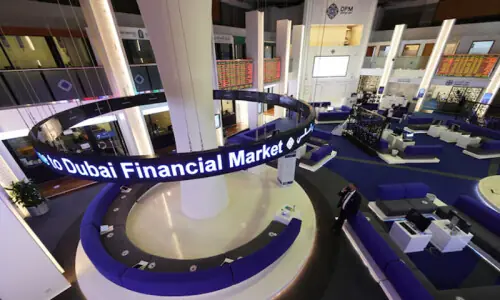KARACHI: Concerns are rising in Pakistan’s financial sector amid negotiations with Chinese authorities over rescheduling energy sector loans.
On Friday, Finance Minister Muhammad Aurangzeb met China’s central bank governor Pan Gongsheng and exchanged views on bilateral finance cooperation, according to a statement from the People’s Bank of China.
Mr Aurangzeb reached Beijing on Thursday for talks on power sector debt relief alongside structural reforms suggested by the International Monetary Fund.
Stakeholders are anxious about the talks’ outcome, fearing significant repercussions for foreign investment and exchange rate stability if things don’t go as desired.
“We believe China will not outright reject Pakistan’s request to reschedule energy sector loans, but the final outcome appears bleak,” said a senior banker closely monitoring the situation.
He said that China was initially reluctant to discuss the issue, leading to a delayed visit, signalling their disagreement with Pakistan over talks related to energy loans.
China has been Pakistan’s largest foreign investor for years. Investment from Hong Kong, which is considered Chinese-approved, also plays a significant role. While Chinese investments have declined, they remain the largest in FY24. Combining investments from China and Hong Kong, foreign direct investment (FDI) amounted to nearly half of Pakistan’s total inflows, which increased by 17 per cent in FY24.
Despite this growth, total inflows were just $1.9 billion, with China ($568 million) and Hong Kong ($338m) contributing a combined $906m.
“Our dependency on China has increased as we negotiate to reschedule $15bn in energy sector loans, receive the highest FDI from China, and rely on them as our largest trade partner,” said S.S. Iqbal, a senior banker. “China has also been providing loans or rescheduling payments to strengthen our reserves.”
On March 23, 2018, the People’s Bank of China signed an agreement with the State Bank of Pakistan to provide a $2bn loan via China’s State Administration of Foreign Exchange (SAFE) to shore up Pakistan’s foreign exchange reserves.
This loan has been rolled over annually since 2018, with the most recent rollover occurring on Feb 29, 2024. The loan was due in March and was extended for one year.
“While China has supported our reserves, the State Bank stopped a $1.8bn profit outflow to Chinese investors in FY24,” Mr Iqbal said, wondering, “How can the Chinese sit calm and cool with this kind of treatment?”
Published in Dawn, July 27th, 2024

































